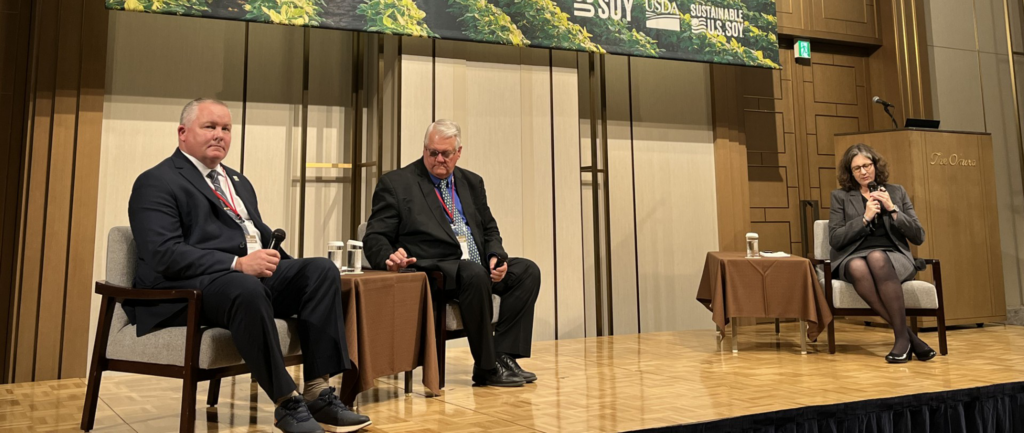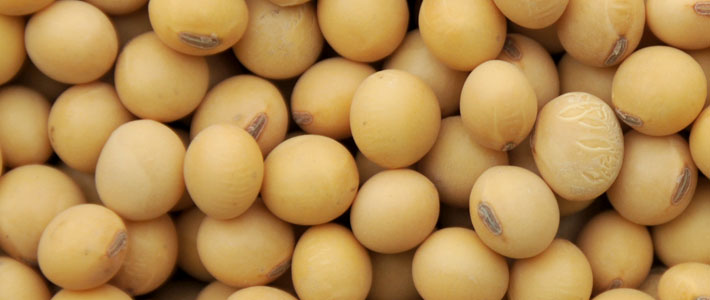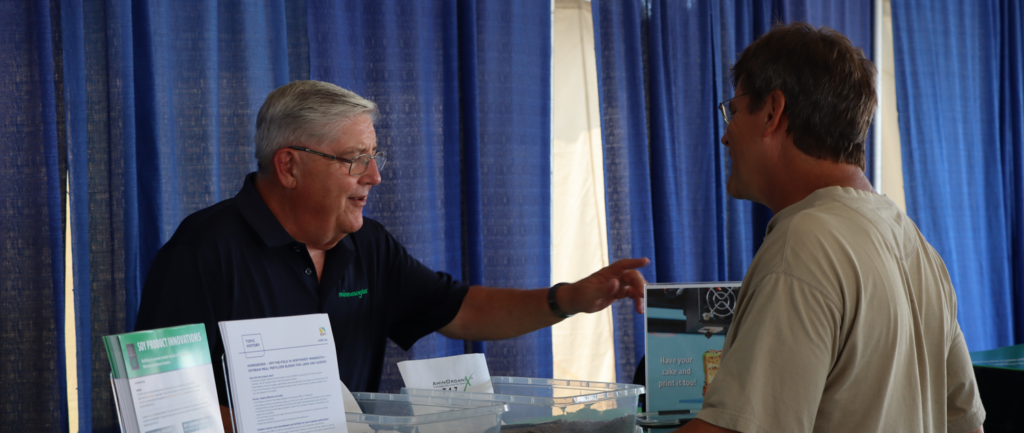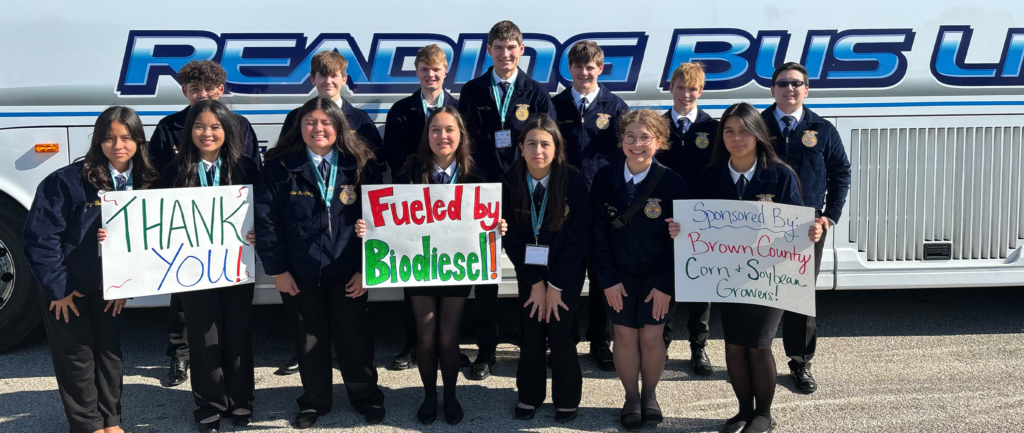Maintaining and developing new markets is a continuous effort for the Minnesota Soybean Research & Promotion Council (MSR&PC).
However, challenges within the areas of market development arise whether that is trade barriers, logistics or competition from other countries.
With this in mind, MSR&PC works collectively alongside Minnesota Soybean Growers Association (MSGA) to give Minnesota soybeans a competitive edge to increase marketability.
“We go where MSR&PC can’t go. We work on the policy side of things to help increase trade,” said Joe Smentek MSGA Executive Director. “And we let MSR&PC find new opportunities for soybeans, provide research we need and promote soybeans.”
In September, MSGA met with the UK Embassy in Washington D.C. where grower leaders touted the opportunities the Port of Duluth could have with the UK.
Following the visit, Smentek was invited to attend a roundtable discussion around the topic of US/UK Trade via the St. Lawrence Seaway where he recommended MSR&PC Director of Market Development Kim Nill to speak in his place.
“Kim is extremely knowledgeable on exports and has been very hands on with the efforts in Duluth,” Smentek said.
During the round table discussions, around 30 key leaders discussed trade opportunities, options, challenges, barriers, strengths and more. One question that was brought to the table was how does the industry compete against the other modes of transportation including shipments going out of the PNW and the Gulf of Mexico?
Nill sees this question as an opportunity.
“The size of ships gives Duluth its niche,” Nill said. “Not all ports can handle the large ships coming out of the PNW or out of the Gulf of Mexico.”
One example Nill brought up was Scotland’s aquaculture industry, specifically their salmon industry.
“Scotland’s feed mills are built right by their ports. Instead of docking at a larger port and transferring soybeans to a smaller boat to make its way to one of Scotland’s ports, they can skip the ‘middle man’; thus, making it cheaper.” Nill said. “That’s Duluth’s competitive edge.”
Another topic of discussion was WTO trade barriers hindering the UK’s purchase of soybeans.
“There is a zero tolerance for GMO mixture in organic soybeans, which can lead to false positives. Additionally, one kernel of unapproved-in-UK biotech corn in a container can cause a shipment of soybeans to get turned away,” Nill said. “I was glad to hear that they are working on these trade barriers.”
The round table discussion brought forth many more opportunities and challenges for meeting goers to stew upon.
“It was nice to be able to have our foot in the door to discuss the benefits of shipping more soybeans out of the Port of Duluth,” Nill said. “I am sure there we will be more opportunities to work together to increase shipments.”







